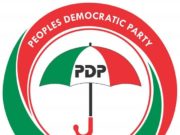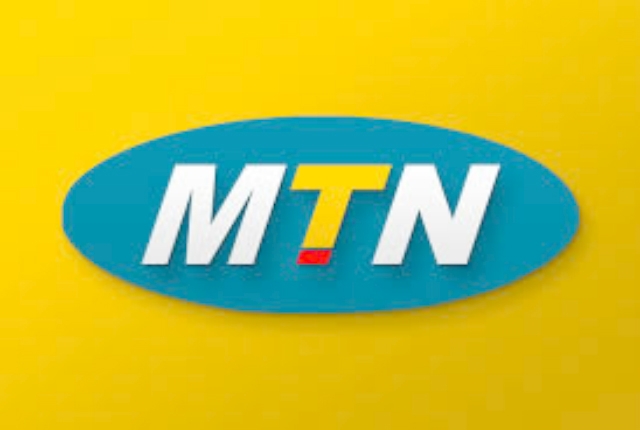The decision arrived at by the Central Bank of Nigeria (CBN) to punish MTN Nigeria and four banks for FX infractions came after a pain-staking investigation spanning a period of over 30 months.
The Governor of the Apex Bank, Godwin Emefiele revealed this on Monday in China.
Speaking to Businessday Newspaper from China, the Governor said he wanted to clear the air because the matter/offences committed by the entities concerned were very weighty and had attracted global attention.
He, however seized the opportunity of the interview to assure both local and foreign investors that there was no need for anyone to express worries as the CBN will continue to honor all CCIs that are issued in Nigeria to support their investment. He however cautioned that it is absolutely necessary that investors must ensure that they abide by the extant laws and FX regulations governing the operations of banking business in Nigeria.
It was reported that MTN shares in the South African bourse has lost at least 15% since the CBN imposed the latest sanction.
According to Emefiele, the total amount to be repatriated by both the banks and MTN stands at $8.14bn, and once received, the CBN will credit the company with the naira equivalent at the exchange rate at which the transactions were consummated, “It is important to stress that the CBN examiners had been investigating three charges of infractions against the four banks and MTN, particularly the manner of funding the equity investment into MTN and the subsequent capital repatriation that resulted thereafter”.
“The investigation was in two parts, the first allegation started about two and a half years ago, when examiners began to investigate;
The method of payment for shares by local shareholders in MTN International, which is the sole owner of MTN Nigeria.
Whether the banks breached the extant regulations requiring banks to issue CCIs within 24 hours of receipt of funds inflowed into Nigeria.
On the 1st charge regarding investment by local shareholders, the CBN examiners discovered that the local investors, purchased fx from the Nigerian foreign exchange market, repatriated the funds and these funds formed part of the total funds inflowed by MTN totaling $402m between 2001 and 2003. By the extant regulation, only funds inflowed into Nigeria qualify for the issuance of CCI. However, examiners observed that the extant FX regulations at the time of investment allowed Nigerians to purchase shares with foreign currency. So, whereas you would say that the investment of the local shareholders should be voided because the funds came from within Nigeria and were round tripped, you can also say that it is allowed because Nigerians were allowed to invest in foreign currency assets. So we reasoned that since this transaction happened over 10 years ago and the company was doing well, we should grant them a waiver.
On the Second offence regarding the CCIs, the regulation provides that banks must issue CCIs for inflowed funds within 24 hours. The examiners reported that the banks failed to issue some of the CCIs within 24 hours; which is sanctionable. Again the CBN decided to overlook this offence given that these transactions took place over 10 years ago.
It was based on these facts that the CBN wrote the letter dated February 22, 2017 granting MTN the permission to continue paying dividends on the CCIs. So when our Directors were summoned by the Senate to provide the CBN perspective, they told the Senate that the CBN had pardoned the offences and based on this, the Senate towed the same line with the CBN and cleared MTN and the banks of the issues.
Now the third offence, which is actually the crux of the matter in dispute now relates to the unauthorized conversion of a loan of $399 million to preference shares by the MTN and the banks and thereafter repatriated the sum of $8.1 billion without CBN final approval.
The facts from the last examination which commenced in March 2018 is that, at the inception of the company, the shareholders inflowed the sum of $402million and reported that $343million was equity and $59 million as loan. The examiners later discovered that in its 2007 audited accounts MTN’s auditors reported that the investment of $402million was stated as $2.99million in equity and $399m as loan, a statement that is in conflict with their earlier disclosure and on the basis of which CCIs had long been issued to the company. Soon after, the company, through its bankers approached the CBN for the conversion of the loan of $399million to Preference shares. The CBN thereafter gave an Approval in Principle subject to fulfilling certain conditions. Notwithstanding, the Company and the bank went ahead and concluded the conversion to Preference shares without CBN’s final approval and based on this, repatriated the sum of $8.1billion outside the country.
The CBN felt this was too grievous and that this couldn’t be ignored. When the Committee of Governors was informed about this breach, it sounded unbelievable. In order to give the MTN and the banks a fair hearing, a meeting comprising the CBN Committee of Governors, the over 20 Examiners, the MTN officials and the banks was held on May 25,2018. At this meeting, we gave the company the opportunity to defend itself over the breach but unfortunately, it couldn’t. In fact the bank that concluded the conversion, apologized; stating that it was an unintended error. The COG was alarmed that a bank could ignore CBN’s directive requiring final approval before such a huge transaction could be consummated. The COG further directed MTN and the banks to meet with the examiners to provide any evidence within one week that could convince the examiners to change their position. Indeed, the deadline for the submission of documents and evidence was extended to over 12 weeks. Despite granting these extensions, the examiners position never changed, as the Company and the banks had no new evidence to provide. Based on this, the examiners concluded their reports and made their recommendations that were subsequently adopted by the COG.
However, as it stands, letters of sanctions have been sent to all parties. This explanation has become necessary so as to clear certain misconceptions currently circulating in the public domain.
Credit: thewillnigeria.com





































































